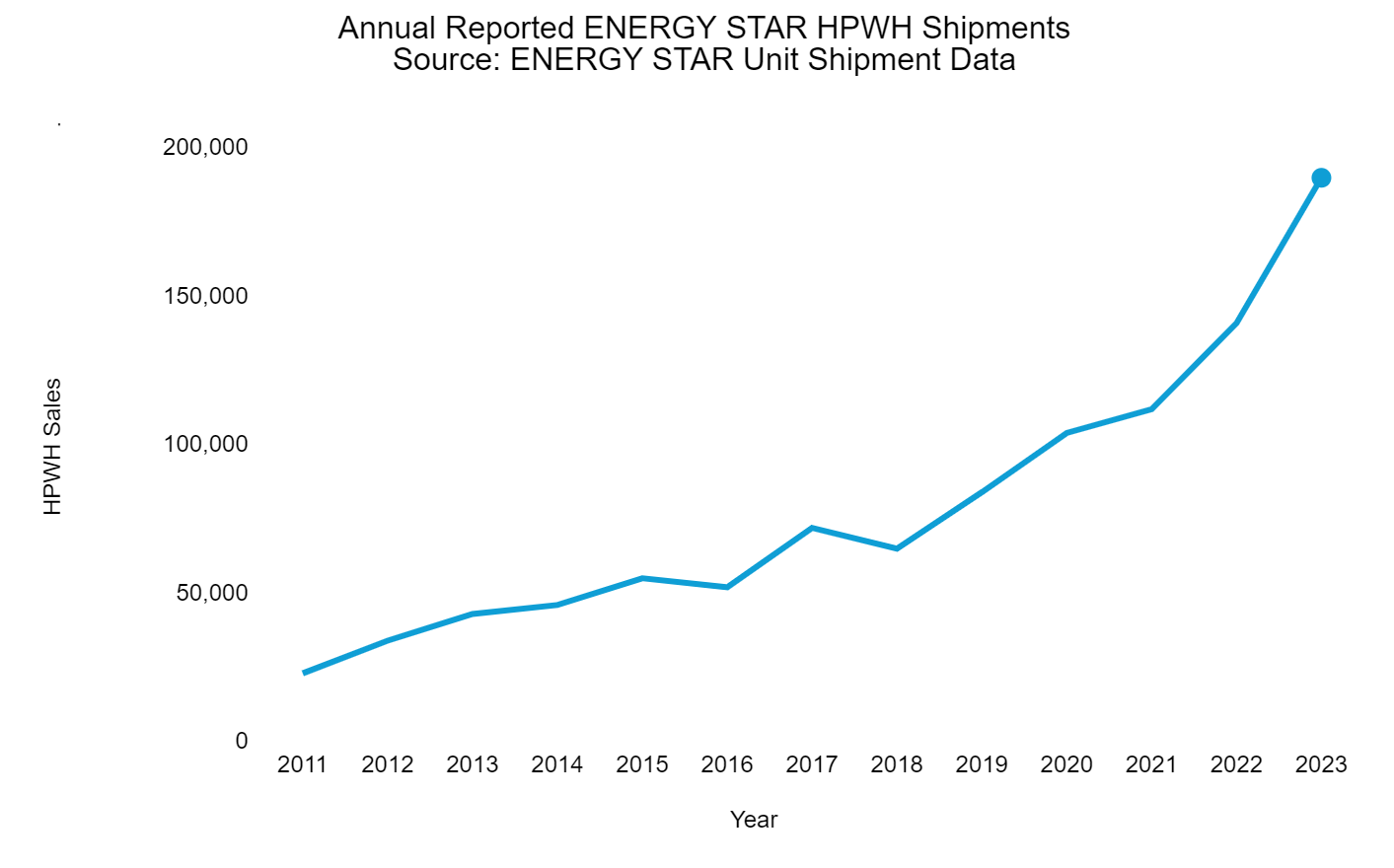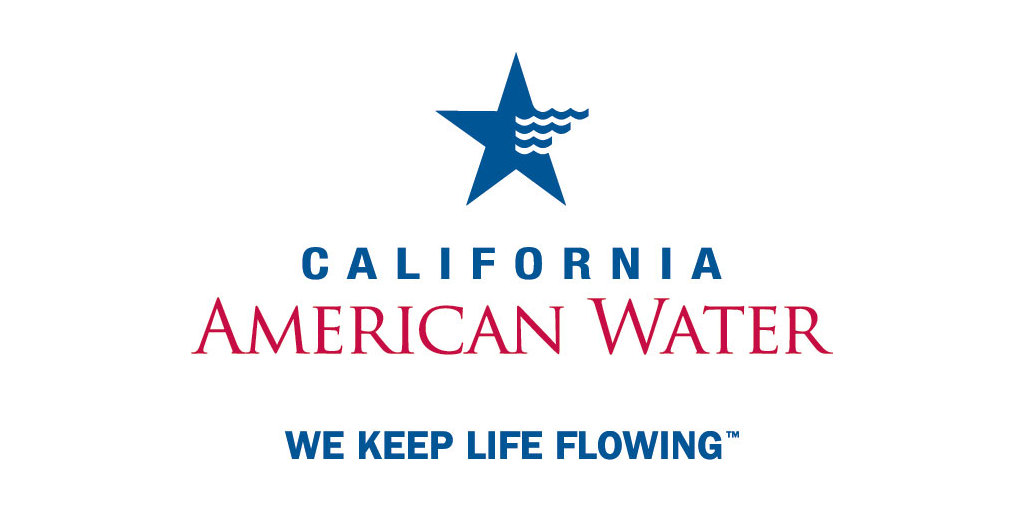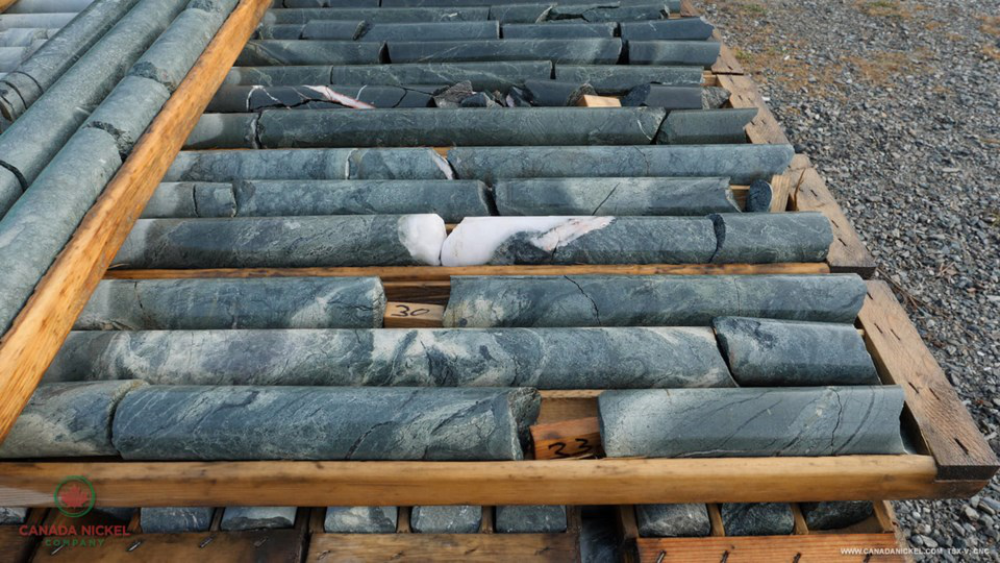Sign up for daily news updates from CleanTechnica on email. Or follow us on Google News!
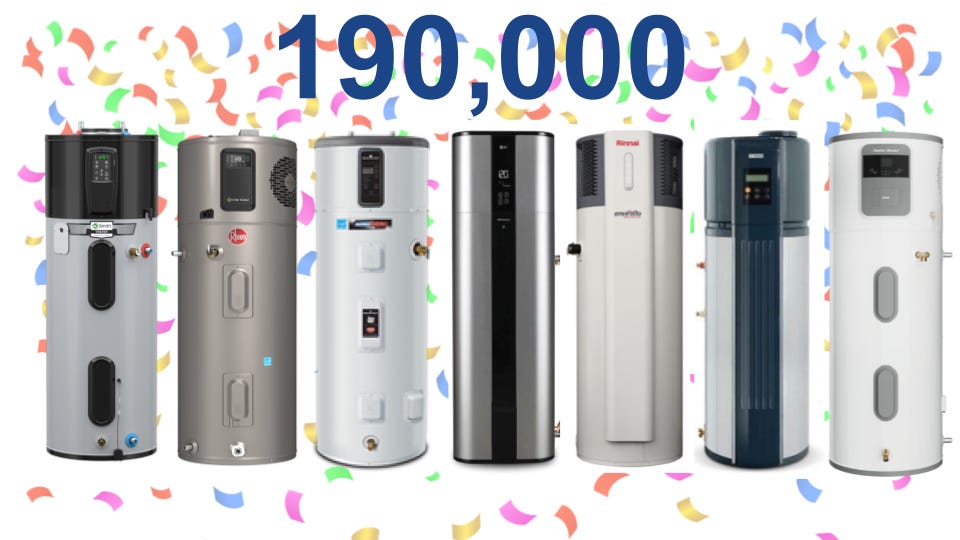
Heat pump water heater sales saw their largest increase ever in 2023, according to the latest data released by ENERGY STAR. Shipments of heat pump water heaters (HPWHs) grew 35% last year to 190,000 units, their largest numerical increase (50,000 units) in history.
This trend of accelerating shipment growth is great news for fans of decarbonized water heating. It’s also great news for the environment, as HPWHs have energy efficiency levels 2–4 times higher than other types of water heaters, are emission-free during operation, and save one ton of CO2 annually on average compared to gas water heaters. The average gas tank water heater is responsible for 64% more greenhouse gas emissions than a comparable HPWH (factoring in both refrigerant leakage and upstream methane impacts).
Heat pump water heaters still make up a small percentage of overall water heater sales, 2.1% in 2023 and 3.9% of electric water heater sales. Yet, the product has seen steady growth since 2009 when it was first certified as an ENERGY STAR product, and we may now be seeing liftoff.
What drove the uptick in HPWH sales in 2023? They continue to gain market share as consumers become significantly aware of the cost savings they can achieve over time (ENERGY STAR estimates an average family of 4 using an electric resistance water heater would save $550/year with a heat pump water heater). Forward-thinking companies like Clayton Homes are also a big part of 2023 HPWH growth, having committed to installing HPWHs in all of their manufactured homes (starting in mid-2023). Clayton’s HPWH installations alone will number over 40,000 in 2024, showing the power of individual companies (and the Inflation Reduction Act, which offers significant tax credits) to drive this market. Customers save money on their energy bills, Clayton can claim tax credits and tout a market-differentiating feature that increases the value of their homes, and the environment breathes easier. It’s a win-win-win.
Policies like codes and standards are starting to drive the market towards HPWHs. The Department of Energy finalized a rule in April this year to phase out electric resistance water heaters over 35 gallons starting in 2029 that could lead to HPWH sales topping three million units annually. States like Washington are heavily incentivizing HPWHs through their building codes. Air quality agencies are also beginning to mandate zero-NOx emissions standards for water heating equipment, which will likely phase out combustion water heaters in regulated areas (see map below) starting in 2027. The areas currently covered or exploring zero NOx emissions account for ⅓ of the housing units across the U.S.
Gas water heaters continue to lose market share
Gas water heater sales continue to decline, losing 6% market share of new sales since 2018. This trend is expected to accelerate with more Air Quality Agencies requiring zero NOx emission water heaters, more HPWH programs, cost compression as HPWHs scale, tax credits, and increasing consumer and installer familiarity with the technology.
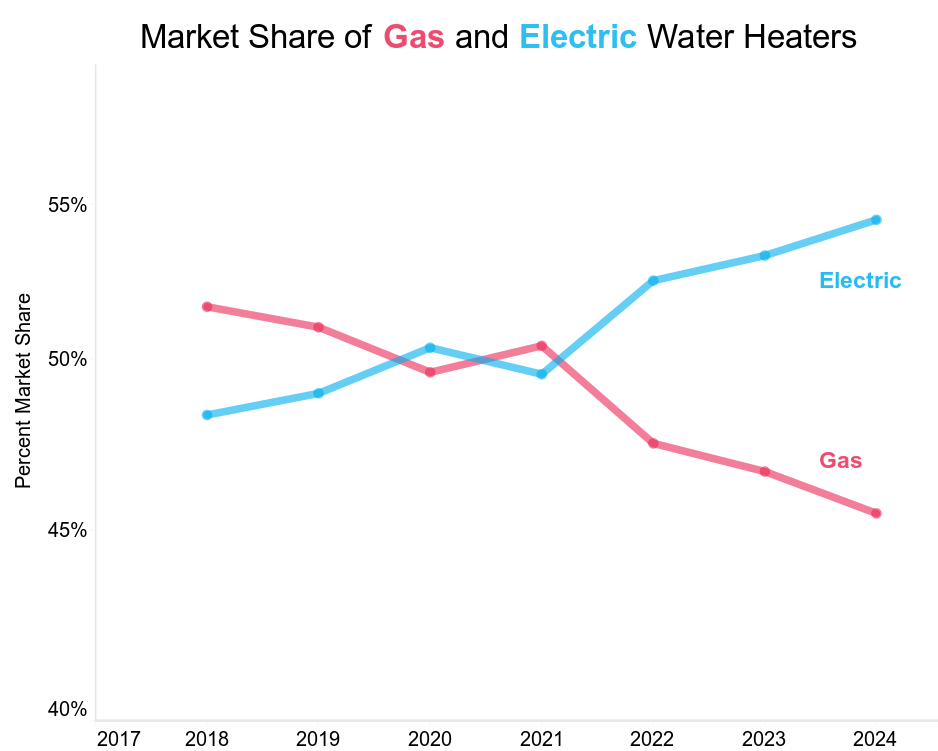
This decline included sales of ENERGY STAR–certified gas water heater models such as tankless water heaters, which fell by 23% year over year (though, this decline was likely strongly influenced by an increase in efficiency required by ENERGY STAR, which went into effect in April 2023), and condensing units, which fell by an astounding 58%. ENERGY STAR indicated it will begin to phase out certification of gas water heaters in the near future, writing in its latest product specification for water heaters, “Based on current analyses, it will make sense to sunset the gas water heating criteria in the near future.”
2023 was another big year for the HPWH industry, and the future looks promising, with many positive signs pointing to accelerating growth in the next 5–10 years. With sales of fossil fuel powered water heaters declining, ENERGY STAR expecting to stop certifying gas water heaters, and most electric resistance water heater tank sizes scheduled to be phased out by the end of the decade, HPWHs are poised to become the dominant type of water heater in the near future.
Stay up to date on news and trends in water heating by signing up for the Advanced Water Heating Initiative (AWHI). Join us for HPWH Day on Wednesday, October 23, 2024. The day will be dedicated to HPWH education and awareness with special online events and resources from AWHI partners.

Have a tip for CleanTechnica? Want to advertise? Want to suggest a guest for our CleanTech Talk podcast? Contact us here.
Latest CleanTechnica.TV Videos
CleanTechnica uses affiliate links. See our policy here.
CleanTechnica’s Comment Policy

